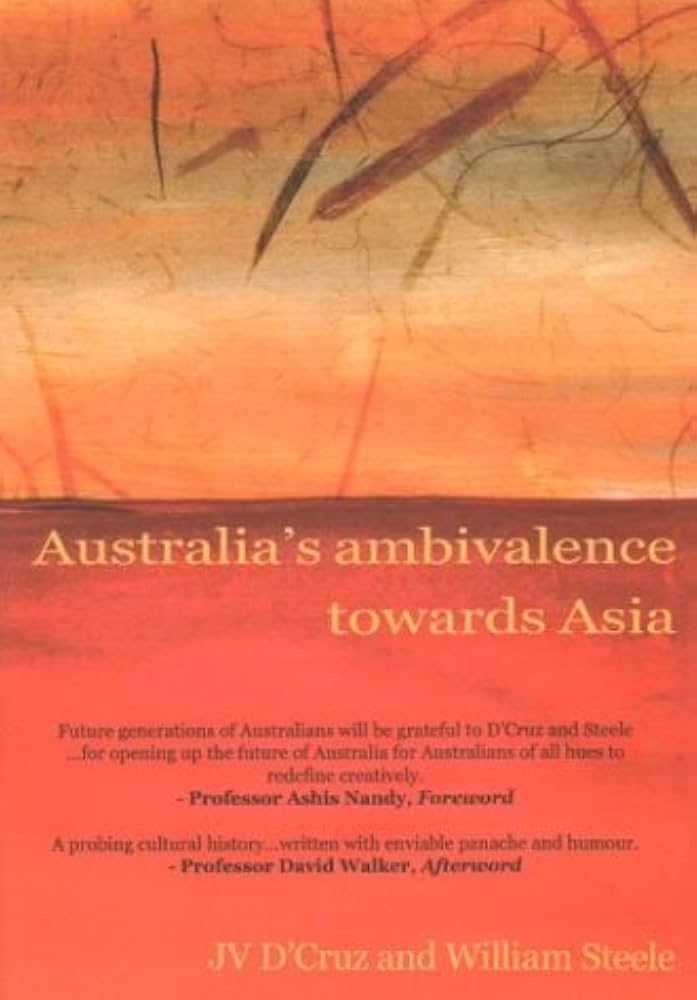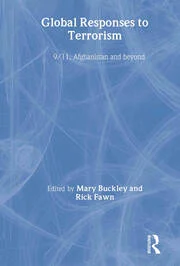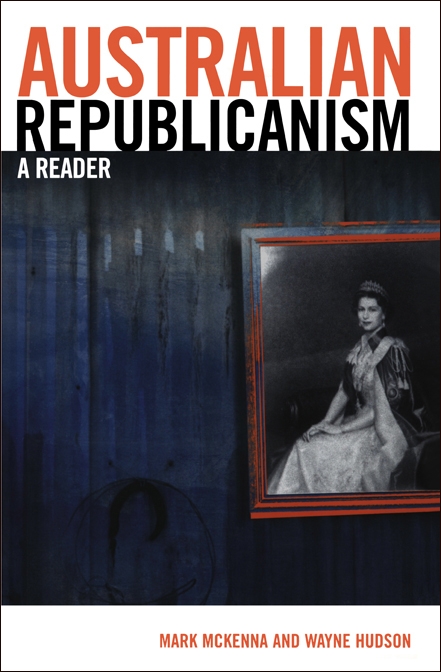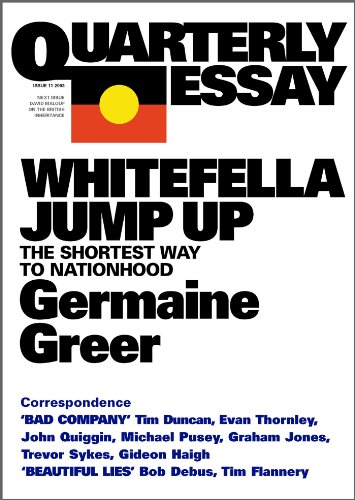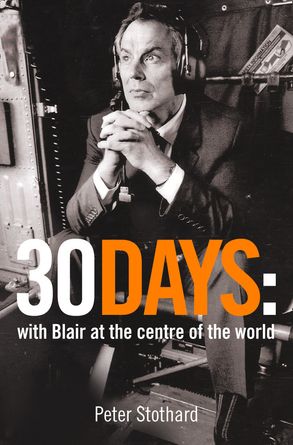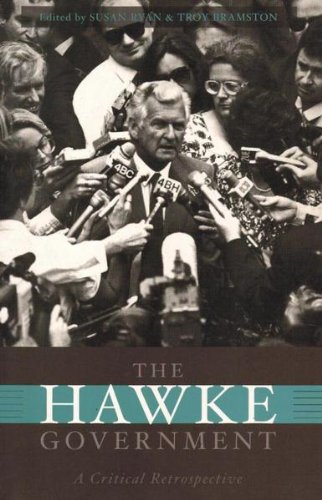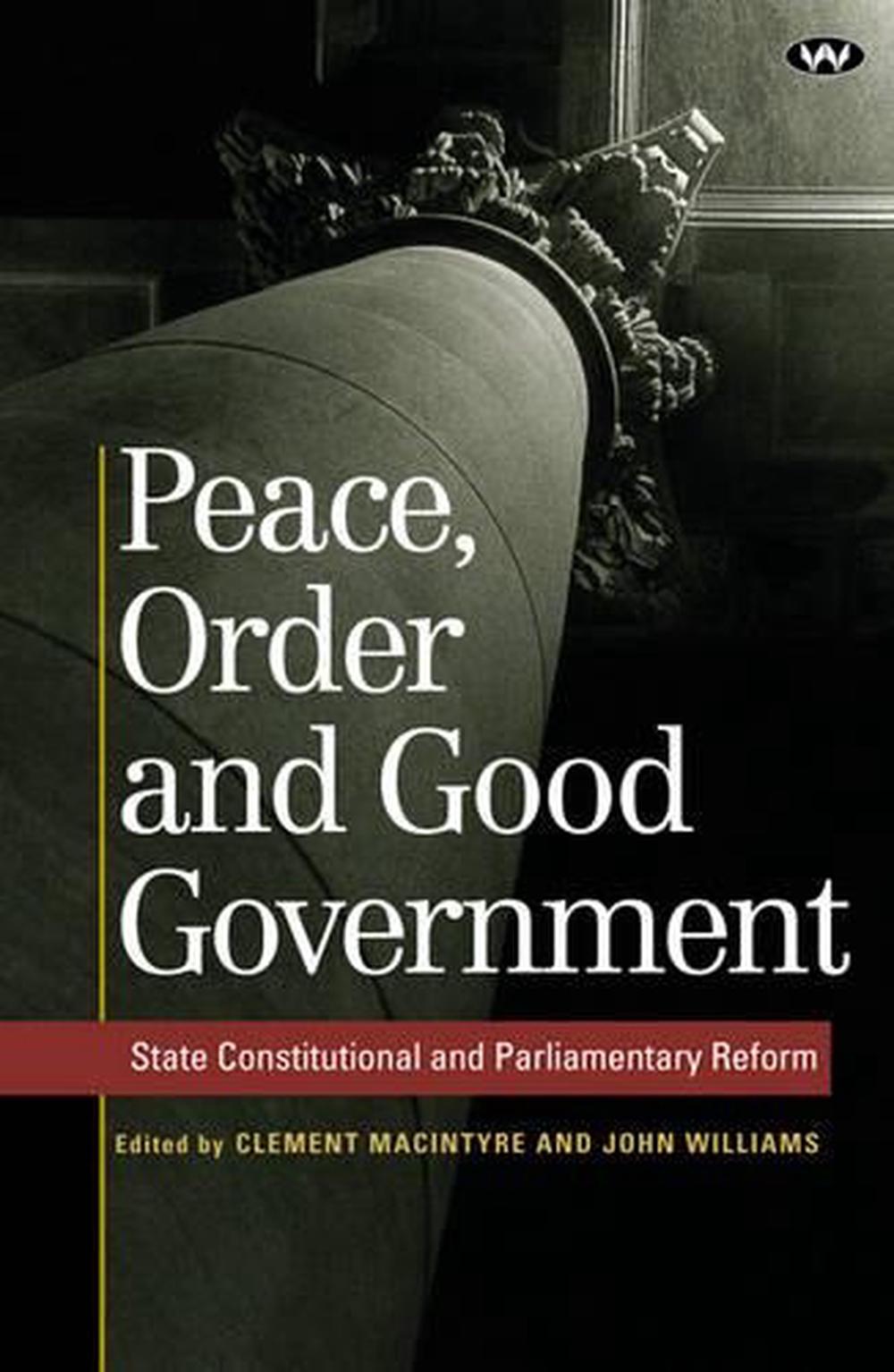Politics
Australia's Ambivalence Towards Asia: Politics, neo/post-colonialism, and fact/fiction by J. V. D'Cruz and William Steele
In the aftermath of 9/11, Americans have been asking why the world hates them. Now it’s Australia’s tum. Why do Asians applaud when Dr Mahathir mocks us? Why docs the Indonesian prime minister snub Australian leaders? Why, despite progress with bilateral trade agreements, do we seem to be permanently locked out of organisations such as ASEAN and ASEM?
... (read more)Global Responses to Terrorism edited by Mary Buckley and Rick Fawn & Terror Laws by Jenny Hocking
Does Australia need new laws against terrorism? In 1979 Mr Justice Windeyer of the NSW Supreme Court argued that all the forms of violent wrongdoing that are called terrorism are already punishable as crimes under Commonwealth or state law. The best safeguard against new terrors and apprehensions, he told the Hope Royal Commission on Australia’s Intelligence Agencies, lay in the rigorous enforcement of existing criminal law rather than in making new laws expressly about ‘terrorism’.
... (read more)Orwell's Australia: From cold war to culture wars by Dennis Glover
George Orwell must be spinning in his grave. Aghast at the use of his name to inspire any political crusade or bandwagon, the ardent advocate against the use of language to spin an alternative reality is forever being used to bolster the armory of political activists around the world.
Should Orwell be allowed to rest? Simon Crean’s speechwriter, the cerebral Dennis Glover, evidently thinks not. One hundred years after Orwell’s birth, Glover has recruited the socialist contrarian, novelist and essayist to his cause. In Orwell’s Australia: From Cold War to Culture Wars, Glover invokes Orwell’s legacy to rail not against the decline of the English language and the use of words to say one thing while meaning another, as is often the case, but rather to lament the state of modern Australia and the lost dream of a ‘social democracy without ideology’. Just like Orwell in the first half of the twentieth century, Glover sees a bleak future characterised by ‘the disappearance, under the pressure of coming wars, of a whole way of life, and its replacement with something shallower, nastier, prefabricated, more ideological and more politically and socially divided’ – in other words, John Howard and conservative hegemony enveloping the Australian way of life.
... (read more)Australian Republicanism: A reader by Mark McKenna and Wayne Hudson
Was there ever an uglier duckling than Australian republicanism? It’s a movement whose end is vital to anyone who believes that a people should attempt to extend the control over their own destiny, but which, of itself, fails to inspire the slightest excitement in anyone for whom politics is a living, breathing thing. Even more suspicious are those for whom republicanism is an exciting cause. They’re a strange mob, often decent and committed people, but able to subsist on a fairly thin diet. Because so many of them are lawyers, they are always on the ball when it comes to saying how the Constitution should be changed and what new mechanism should be put in place. Because so many of them are lawyers, the movement is efficient and well run. And because so many of them are lawyers, no one else trusts them or feels comfortable working with them.
... (read more)Whitefella Jump Up by Germaine Greer & Made In England by David Malouf
Peter Craven calls up an echo of W.B. Yeats’s ‘The Circus Animals’ Desertion’ at the conclusion of his introduction to Germaine Greer’s highly charged and instantly controversial essay Whitefella Jump Up. ‘It is an essay about sitting down and thinking where all the politics start,’ he writes.
... (read more)30 Days: A month at the heart of Blair’s war by Peter Stothard
This book is as beguilingly English as a Fortnum & Mason picnic hamper. Peter Stothard (a former editor of The Times and current editor of the Times Literary Supplement) spent a month inside 10 Downing Street reporting in intimate detail the comings and goings there during the critical days before and after the Coalition of the Willing began its assault on Iraq on March 20 this year. He evokes a life-size doll’s house from which a war is being waged by perplexed adults in suits and jeans, who pick spasmodically at substandard food, fantasise about fitness régimes and support spectacularly unsuccessful soccer teams. The man in charge lives in a flat above this strange enterprise with the rest of his family.
... (read more)Since the beginning of 2003, nine writers and journalists have been murdered worldwide, adding to International PEN’s list of 400 who have been killed over the last ten years. In the same period, 769 other writers and journalists have been imprisoned, tortured, attacked, threatened, harassed and deported, or have disappeared, gone into hiding or fled in fear of their lives – simply for practising their profession.
... (read more)A Perilous and Fighting Life: : From communist to conservative: The political writings of Professor John Anderson edited by Mark Weblin
Most of us know something about John Anderson (1893–1962). He is remembered as a libertarian philosopher who, during his time at the University of Sydney, influenced various individuals and groups, most notably the Sydney ‘Push’. Writers on Sydney’s intellectual tradition tend to locate the Scottish-born Anderson at the epicentre of this universe. Anderson is someone, however, of whom it is true to say that he is more often referred to than read. His major philosophical works were collected, or entombed, in Studies in Empirical Philosophy (1962). Now, as part of his ongoing attempt to resurrect Anderson, Mark Weblin, the John Anderson Research Fellow, has collated, edited and provided a useful introduction to Anderson’s political writings. The volume, as a whole, raises two questions. Firstly, do Anderson’s political views remain of general interest? And secondly, what is the place or legacy of Anderson in contemporary Australian debate?
... (read more)The Hawke Government: A critical retrospective edited by Susan Ryan and Troy Bramston
This is a fascinating, inspiring and disquieting book. It is fascinating because it succeeds so well in its comprehensive overview of policy making and policy intentions during the Hawke government (1983–91). That success derives from the unparalleled mix of insiders (former ministers, public servants, leaders of unions and NGOs), journalists and academic analysts, though the voice that is notably absent is that of business. Inspiration comes when one can see, beyond the obsession with pragmatism and economic reform, glimpses of a genuine ‘third way’ in the development of social capital. Disquiet arises because so many of the contributors fail to see how they created the social malaise that dogged the final years of the Labor government, and how, in abandoning the ‘old’ ideologies, they prepared the ground for the profoundly ideological and destructive government that would follow.
... (read more)Peace, Order and Good Government: State Constitutional and Parliamentary Reform edited by Clement Macintyre and John Williams
Speaking in the context of the Quebec secessionist movement, Stéphane Dion described Canada as ‘a country that works in practice but not in theory’. Whilst particularly telling of that country’s political turmoil, Dion’s summary also points to an abiding tension in all Western democracies: the perceived gulf between the theory and the practice of modern government. Constitution and parliament, the people and their representatives, tradition and modern requirements: in theory, each pair dovetail, but in practice they tend to be loose at the edges. (Try finding, for example, any reference to ‘prime minister’ in our Constitution.) The ongoing efforts within Australia to reconcile the theory and practice of government are at the centre of this important book, which was released to coincide with the South Australian Constitutional Convention (held in August 2003).
... (read more)
